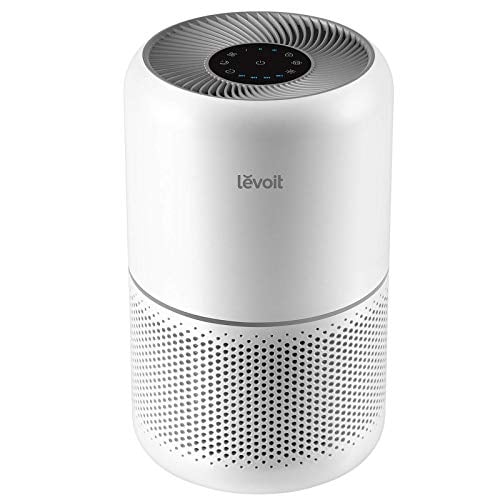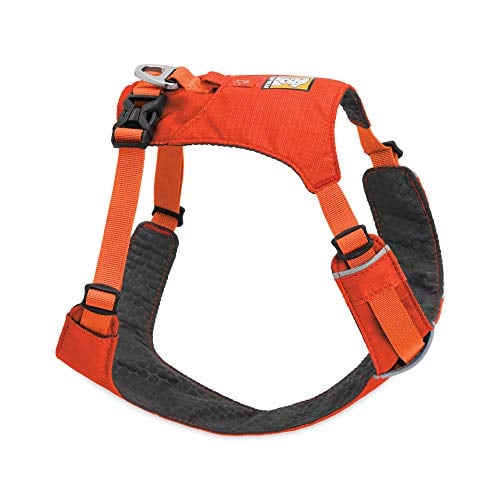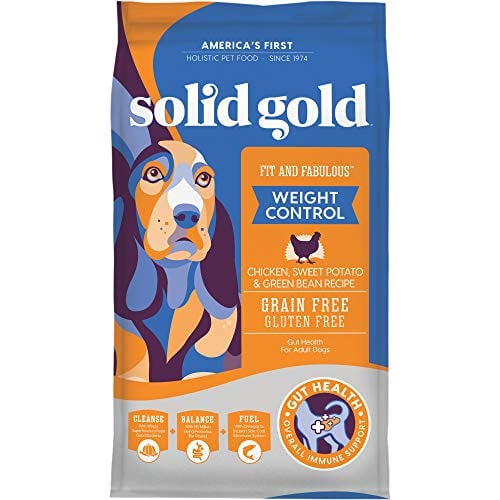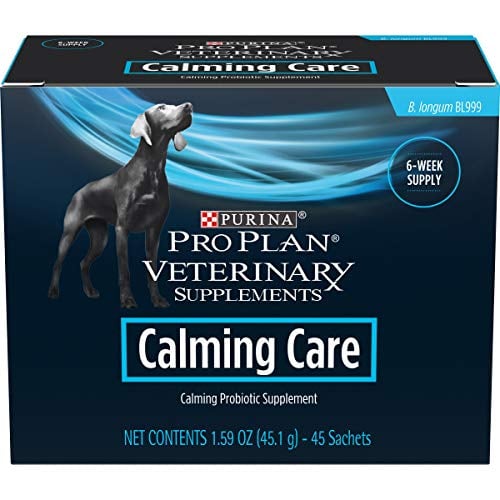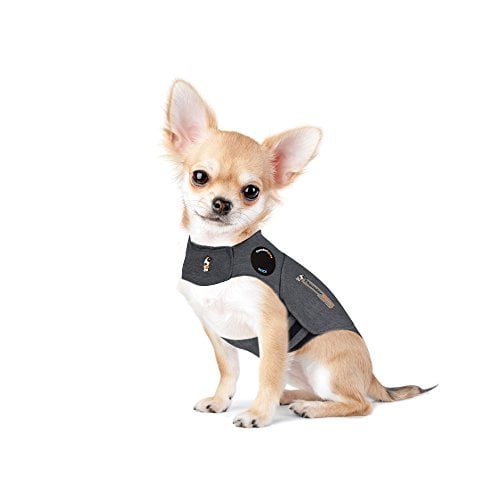- This post contains affiliate links. Read more here.
- Not a substitute for professional veterinary help.
A collapsed trachea (windpipe) may sound alarming, but a collapsed trachea in dogs isn’t always a medical emergency. In fact, you can treat this progressive condition with medication and lifestyle changes.
“Tracheal collapse in dogs is more often noticed in smaller breeds, such as Yorkshire Terriers and Pomeranians,” says Dr. Michael Rossi, DVM, Director of Clinical Studies at Coastal Veterinary Dermatology & Ear Clinic.
Read on to learn more about the causes of tracheal collapse in dogs and the best ways to support a dog who has this condition.
What Causes Collapsed Trachea In Dogs?
Dr. Rossi says experts still don’t fully understand the exact cause of tracheal collapse in dogs.
“In general, it’s associated with a softening of the cartilaginous rings that help hold the airway open,” he explains. “As these rings lose their rigidity, they become compressed, which typically will cause the patient to cough.”
According to an older study that considered 90 cases of tracheal collapse among 11 dog breeds, this condition most commonly showed up in Yorkshire Terriers, Pomeranians, and Poodles. This suggests that genetics may play a role in the development of this condition.
Additionally, many dogs with a collapsing trachea are also overweight. Carrying more weight can place more pressure on the bronchi, which are the tubes that carry air to the lungs.
Other risk factors for this condition include heart or lung disease, particularly chronic bronchitis.
Symptoms Of Collapsed Trachea In Dogs
Dogs experiencing tracheal collapse will have:
- A dry, chronic cough that makes them sounds like a honking goose
- Labored breathing or wheezing
- Difficulty inhaling, exhaling, or both
Some things that can make a dog’s cough worse include:
- Excitement
- Stress
- Exercise
- Cigarette smoke or other irritants in the air
- Pressure on the windpipe through the use of a collar and leash
Signs of severe tracheal collapse include:
- Difficulty breathing
- Fainting or collapse
- Blue gums and teeth
These signs indicate a respiratory emergency, so you’ll need to take your dog to your regular vet or an emergency vet right away for immediate medical attention.
How Do Vets Diagnose Tracheal Collapse?
A vet will typically diagnose a collapsing trachea by taking a thorough history, giving your dog a physical exam, and considering other factors like your dog’s age and breed, Dr. Rossi explains.
They may gently press on the tissue along the front of your dog’s neck to check if that makes them cough—and listen to what your dog’s cough sounds like.
Other possible ways they may diagnose tracheal collapse include tests like radiographs, bronchoscopy, and fluoroscopy techniques.
Treatments For A Collapsed Trachea
Dr. Rossi says the treatment for tracheal collapse generally includes a combination of approaches that aim to help reduce inflammation, coughing, and compression of the neck region.
Your vet may recommend:
- Making environmental changes: Cooler environments with a low, ambient humidity may have benefit for your dog, since dogs with tracheal collapse are prone to overheating. Crate fans and cooling mats may help keep your dog comfortable.
- Switching to a harness: Using a harness instead of a collar can help reduce pressure around the neck and throat area.
- Helping your dog lose weight: Your vet may recommend switching your dog to a weight loss food and increasing their activity to help them lose weight, which can help manage tracheal collapse. Just check with your vet before making any changes to your dog’s diet or exercise routine.
- Trying steroids: Glucocorticoids, either systemic or via inhaler, can help reduce inflammation associated with coughing. Since steroids may cause unwanted side effects in large amounts, it’s important to carefully follow your vet’s directions for steroid use, if they prescribe this medication.
- Giving cough medications: Your vet may prescribe hydrocodone along with steroids to help reduce coughing associated with inflammation.
Medication appears to help improve symptoms of tracheal collapse for 71% of dogs, according to an older study of 100 cases.
If your dog doesn’t respond to medications or lifestyle changes, they may need surgery.
Surgery for tracheal collapse
If your dog is experiencing a respiratory emergency or hasn’t responded to medication, then your vet may recommend surgery to treat tracheal collapse.
The two most common types of surgical procedures for tracheal collapse are:
- Tracheal ring: This surgery involves a rigid ring prosthesis placed in the dog’s tracheal to act as a cartilage ring. Its placement opens up the trachea where it has collapsed to form a non-collapsing tube. Evidence suggests symptoms improve for about 70% of dogs who get this procedure.
- Tracheal stent: This procedure involves cylindrical stainless steel mesh placed in the airway to keep the tracheal open. Evidence suggests symptoms improve for about 90% of dogs who get this procedure.
Surgery is usually only recommended for more severe cases, and your dog will need to continue taking medication after the surgery.
Outlook For Tracheal Collapse In Dogs
Generally speaking, dogs with tracheal collapse will continue to have symptoms and need medication for the rest of their lives. Medication management and other approaches may go a long way toward improving symptoms for some dogs.
This progressive condition won’t get better on its own, but you can do a lot to help ease your dog’s coughing and other symptoms and improve their quality of life.
Helpful Items To Manage Tracheal Collapse In Dogs
We’ve rounded up handy tools to help you manage your dog’s collapsed trachea.
1. Air Purifiers
Airborne irritants like dust and smoke can trigger coughing spells for dogs with tracheal collapse. Investing in an air filtration system could make a difference. This Levoit air purifier, for example, can refresh the air in a room in just 12 minutes—which means this little device can refresh your space’s air five times in an hour.
Choose from four filter types: original, pet allergy filter, toxin absorber filter, and smoke remover. Just be sure to change the filters regularly to keep the purifier working optimally.
Find on Amazon2. Harnesses
Dogs with tracheal collapse still need to exercise, but they may need to take things down a notch. Leisurely, slow-paced walks are the best way to maintain your dog’s weight while preventing a coughing fit.
To avoid placing pressure on your dog’s windpipe, trade their regular collar for a soft vest harness or a no-pull option. We like the Ruffwear Hi & Light harness. It’s adjustable and comes in six sizes, so you should have no problem finding the right size—even for a teeny Chihuahua.
Find on Amazon3. Dog food for weight loss
For overweight dogs with tracheal collapse, a lower-calorie diet can help them lose weight safely, which can improve their breathing. One popular pick is Solid Gold Fit & Fabulous dry dog food. The balanced formula contains chicken, sweet potatoes, and green beans.
Just make sure to check with your vet before changing your dog’s diet. They can offer guidance on the right food for your dog and tips to switch their food safely.
4. Calming supplements
Stress and excitement can trigger coughing for dogs with collapsed windpipes, so it’s important to keep your dog as calm as possible. These Purina supplements, developed by vets, nutritionists, and researchers, contain a dose of the probiotic BL999, which helps ease canine stress.
Ask your vet about other types of calming treats for dogs, or consider trying calming pheromones.
5. Pressure wraps
Widely recommended by vets and trainers, calming vests are designed to mimic the gentle pressure of a hug. Whatever troubles your dog—fireworks, travel, grooming sessions, the vet—a ThunderShirt may help ease their stress and prevent painful coughing episodes.
We know how important your dog’s health is to you. We also know vet bills can be expensive, particularly for dogs with medical conditions—which means it might be a good time to think about pet insurance. Curious about whether pet insurance is right for you? Check out our pet insurance explainer for some top pros and cons.


